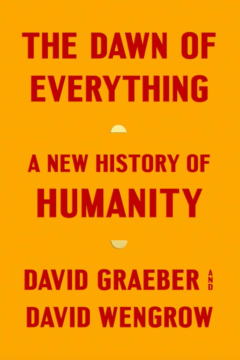Justin E. H. Smith in his Substack newsletter, Hinternet:
 I have seen many things (corpses, the Northern Lights, a beached whale), but a few sights have left a particularly vivid impression. One is of a boy I spotted in Istanbul eighteen years ago. He was fifteen or so, with a pathetic whispy moustache, wearing a suit for what appeared to be the first time. We were in the textile district of Zeytinburnu, and it seemed to me he was likely beginning a new life in his father’s small business, though I could be wrong. Whatever the occasion, the boy had deemed fitting to commission the labor of an even smaller boy, nine years old or so, to shine his shoes. The shoeshine kid was kneeling on the ground, scrubbing away with rags and polish from his portable kit, a borderline-homeless street gamin for whom all of our rhetoric about the sacred innocence of childhood means nothing at all. The fifteen-year-old stared down haughtily, like a small sovereign, and the nine-year-old, knowing his place, did not dare even to look up.
I have seen many things (corpses, the Northern Lights, a beached whale), but a few sights have left a particularly vivid impression. One is of a boy I spotted in Istanbul eighteen years ago. He was fifteen or so, with a pathetic whispy moustache, wearing a suit for what appeared to be the first time. We were in the textile district of Zeytinburnu, and it seemed to me he was likely beginning a new life in his father’s small business, though I could be wrong. Whatever the occasion, the boy had deemed fitting to commission the labor of an even smaller boy, nine years old or so, to shine his shoes. The shoeshine kid was kneeling on the ground, scrubbing away with rags and polish from his portable kit, a borderline-homeless street gamin for whom all of our rhetoric about the sacred innocence of childhood means nothing at all. The fifteen-year-old stared down haughtily, like a small sovereign, and the nine-year-old, knowing his place, did not dare even to look up.
Such is the way of the world, our collective, complacency-inducing clichés invite us to think on such occasions. Curiously, such a thought comes to us most naturally when we are observing an instance of domination as it were from above. The haughty kid dared to look down on the lowly kid, and yet if he had noticed he was being observed his haughtiness could quickly have curdled into shame. The further haughtiness of the ultimate obsever, in turn —in the event, me (as far as I know I was not being observed myself)— seems to arise from the passive and prejudicial presumption that the world of Turkish textile merchants and their sons is somehow a more accurate approximation of the mythical state of nature than what we are used to seeing in, say, a fast-food drive-through or a CostCo self-checkout.
But this is of course an illusion.
More here.
